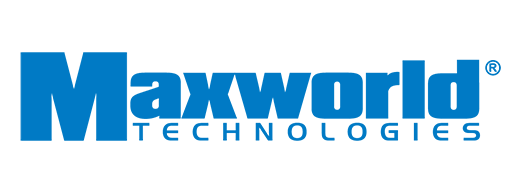We provide comprehensive Lithium iron phosphate battery pack
and customizable solutions for the world.
Lithium Battery
12-36V Lithium phosphate battery Bank series is Lithium Iron Phosphate Battery (LiFePO4)
with compatible SLA (Sealed Lead Acid)battery housing.






High Energy Density
Lithium battery, especially lithium iron phosphate battery stores much more energy compared to lead-acid batteries. lithium phosphate battery has a deep discharge rate providing maximum versatility.
Powerful
Lithium iron phosphate battery is nearly 4 times as powerful as SLA and can provide more time of use.
Light Weight
Conveniently light as well as powerful making lithium iron phosphate battery very versatile.
Eco Friendly
Lithium iron phosphate battery uses more abundant and non-toxic materials that can be produced with less energy and are easier to recycle.
Long Service Life
Lithium iron battery has a long service life. These batteries will provide you with 2, 500 complete charge and discharge cycles.
Low Self-discharge
A low discharge rate means less worry when stored. Lithium iron phosphate battery loses about 2% charge per month! This is possible due to the nature of Lithium Iron Phosphate batteries and their high energy density. Meaning a fully charged lithium iron battery can potentially hold a charge for up to 1 year.
Specifications for Lithium Battery
Applications of Lithium Battery
FAQ for Lithium Battery
- What are lithium ion batteries?
- Lithium ion batteries, or Li-ion batteries, are a type of rechargeable battery that avail of the move of lithium ions from the negative electrode to the positive electrode to discharge and back to charge. There are many types of lithium ion batteries on the market, a popular one of which is 18650. A lithium ion battery is used in a wild range of applications, most commonly found in the electronics industry.
- Why do they use lithium for batteries?
- Lithium batteries are rechargeable and used in many applications such as solar panels, emergency lighting, and street lighting. Compared to other batteries, lithium batteries are much lighter and store more energy in the same physical space. As low-maintenance energy, lithium batteries don’t retain memory, nor do they need scheduled cycling to prolong energy life.
- Can I use a lithium battery instead of an alkaline battery?
- Definitely yes. Compared to alkaline batteries, lithium batteries work for a longer lifespan. Lithium batteries bring you convenience when you use portable devices as it’s true light. The most important is that lithium batteries are rechargeable whereas alkaline batteries can’t recharge. You can also choose an alkaline battery if you’re budget-limited.
- How many times can a lithium-ion battery be recharged?
- It depends on the type of lithium-ion battery and how it is used. Generally, Lithium-ion batteries have a lifespan of 2-3 years. According to authorities, most lithium-ion batteries can be recharged about 1500 times until they degrade. A Device can last for at least 4 years if it’s charged once a day.
- Are there any benefits to lead acid batteries or lithium ion?
- Compared to the lead acid battery, lithium ion battery is more commonly found in most applications. However, lead acid batteries are more reliable when supporting select charging systems. The optimal charging voltage for a lithium batteries should be 14.6 volts to keep the battery healthy and being charged properly. In general, charging voltage and termination current is not as important as in deep cycle applications, as some drop in capacity will not affect the intended application.
- Can I charge a lithium battery with a normal charger?
- In most cases, no. You can’t charge lithium batteries with normal chargers. Normal chargers use varying voltage and current, whereas lithium-ion batteries require a constant voltage and current to power.
- Do lithium batteries die if not used?
- Yes, lithium batteries degrade over time. Also, a faulty sharing system, dirty or corroded terminals, high parasitic drains in electrical systems, batteries that are not suitable for the application, and low maintenance of the battery accelerate the degradation of the battery.
- What is the future of lithium ion batteries?
- Lithium ion batteries are wildly used in the world today, and we can find Li-ion batteries in many applications such as the electronics industry, transportation, and solar. It’s clear that lithium ion batteries have tremendous potential to transit the world into a renewable future.
Maxworld prides itself on our excellent R&D team and strong creativity, with the most advanced facilities, strict ISO standard manufacturing process, efficient management, and the awareness of being a leader in the battery industry, committed to manufacturing and designing Lithium Iron Phosphate Battery and lithium batteries and integrated battery packs for green energy storage systems. Focuses on lead-acid batteries to replace green energy, and provides the best battery solutions for solar energy storage systems, 48V systems for telecommunication stations, 12 or 24V marine and RV energy systems, and so on.










